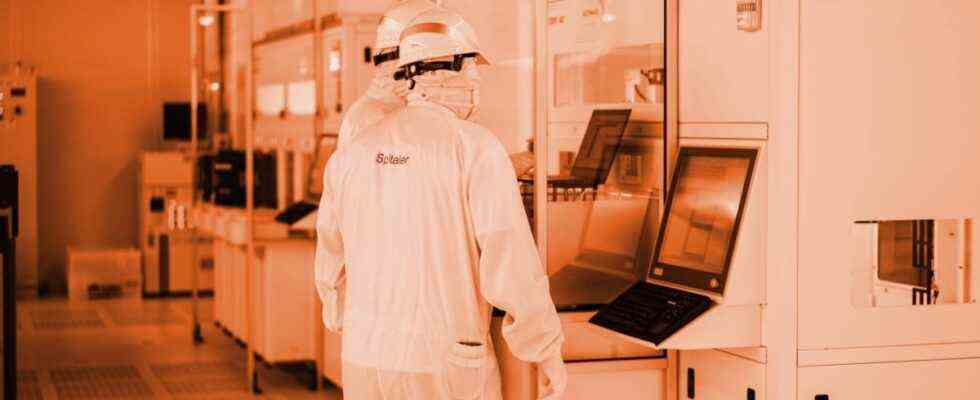It is Jochen Hanebeck’s first important decision. The 53-year-old will take over the management of the Munich chip company Infineon from Reinhard Ploss in April. This Thursday, the future CEO announced that a new semiconductor factory is to be built in Malaysia for more than two billion euros. Infineon is preparing for the accelerated growth of the market, said Hanebeck. So-called compound semiconductors are to be produced based on the newly used materials silicon carbide and gallium nitride. The chips are mainly used for renewable energies and electromobility.
Semiconductors are currently in very short supply worldwide. Many branches of industry have to reduce their production because chips are missing. Among other things, the car industry is affected – and Infineon is the world’s largest semiconductor supplier for the car industry. VW had just announced that the insufficient supply of electronics had meant that around 330,000 cars could not be built in Wolfsburg in 2021. The fewer than 400,000 cars still produced at the headquarters mean a number of units last seen in 1958. Most of the night shifts are to be canceled here soon. Within the VW Group, Audi and Porsche, for example, receive more semiconductors because higher-priced and higher-margin vehicles are produced there.
Infineon – the largest chip group with headquarters in Europe – wants to be the market leader in silicon carbide and gallium nitride. The two materials are regarded as future technology, for example in controlling electricity consumption in electric cars or charging stations, among other things. Gallium nitride can reduce energy losses when charging, for example, said the outgoing boss Ploss at the virtual general meeting. The new plant is scheduled to start operations in the second half of 2024, and at full capacity it will generate two billion euros in additional annual sales. The Munich company already has two large production facilities in Kulim in Malaysia.
Reinhard Ploss will only be head of Infineon until the end of March, after which he will retire.
(Photo: Johannes Simon)
Just last September, Infineon opened a new plant in Villach, Austria, and invested more than three billion euros there. In view of the global supply bottlenecks, the new production came at exactly the right time. The prices for semiconductors have also recently increased, and Infineon was able to benefit from the chip crisis in terms of sales and profits. New semiconductor factories are currently being planned worldwide, and billions are to be spent on them. The EU Commission also wants to provide incentives for more semiconductors to be manufactured in Europe again and for the dependence on manufacturers from the USA and Asia to be reduced.
Some fear that the chip party will soon be over
But there are also warnings. Some investors fear that overcapacities will soon arise, which would then have a negative impact on business in the chip industry. This so-called pig cycle – mass investments in times of shortage and a resulting crisis – has occupied the industry for decades: an upturn was always followed by a downturn. The market is concerned that “the semiconductor party” could soon be over and that the production expansions currently being announced and already under construction would soon lead to overcapacity, said portfolio manager Markus Golinski from Union Investment at Infineon- general assembly. Investing in the future is all about finding the right balance. Deka expert Cornelia Zimmermann said that production at semiconductor manufacturers is currently higher than sales: “We hope that this market development will not lead to a massive build-up of inventories and that the semiconductors will gather dust on the shelves unused.” In fact, the Infineon share has been going down for a few weeks.

